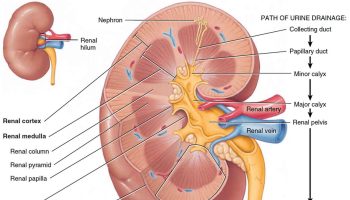Contents
Heart palpitations
Palpitations are feelings or sensations that your heart is skipping a beat, fluttering, pounding, or beating too hard or too fast 1.
You may feel palpitations in your chest, throat, or neck during activity or when you are sitting still or lying down.
- Strong emotions, physical activity, some medicines, caffeine, alcohol, nicotine, or illegal drugs may cause palpitations.
- Medical conditions such as thyroid disease, low blood sugar, anemia, and low blood pressure also may cause palpitations.
- Heart palpitations may be a sign or symptom of arrhythmia, an irregular heartbeat, or other heart conditions such as heart attack, heart failure, heart valve disease, or cardiomyopathy.
Although palpitations are very common and usually harmless, they can be frightening when they happen and may cause anxiety. Most go away on their own 1.
The complaint of heart palpitations is somewhat common in the emergency department, comprising over 0.5% of all emergency department visits 2.
Normally the heart beats 60 to 100 times per minute 3. The rate may drop below 60 beats per minute in people who exercise routinely or take medicines that slow the heart.
If your heart rate is fast (over 100 beats per minute), this is called tachycardia. A heart rate slower than 60 is called bradycardia. An occasional extra heartbeat is known as extrasystole 3.
To prevent palpitations, you can try to avoid things that trigger them, such as stress, alcohol, or caffeine. You also may prevent palpitations by treating any other medical condition that may be causing them.
Palpitations may be a sign of more serious heart problems. You should seek medical attention immediately if you have palpitations and feel dizzy or confused, have trouble breathing, think you may faint, or have pain or tightness in your chest. Your doctor will perform a physical exam and possibly other tests. These tests may include an electrocardiogram (EKG), a stress test, or the use of a Holter or event monitor to study your heart’s activity. Treatment for palpitations will depend on the cause.
What causes heart palpitations
Heart palpitations can be due to 3:
- Anxiety, stress, panic attack, or fear
- Caffeine intake
- Energy drinks
- Nicotine intake
- Cocaine or other illegal drugs
- Diet pills
- Exercise
- Fever
However, some palpitations are due to an abnormal heart rhythm, which may be caused by 3:
- Heart disease
- Abnormal heart valve, such as mitral valve prolapse
- Abnormal blood level of potassium
- Certain medicines, including those used to treat asthma, high blood pressure, or heart problems
- Overactive thyroid
- Low level of oxygen in your blood.
Cardiac disease (38%) was the most common diagnostic category when compiling all the primary emergency department diagnoses for heart palpitations 4. Psychiatric diagnoses and medication/substance-related disorders made up 4.7% and 1.8% of primary emergency department diagnoses, respectively 4. However, in another study, psychiatric illness accounts for the etiology in nearly one third of all patients, cardiac in 43%, miscellaneous in 10% and unknown in 16% 5. A summary of the most common emergency department primary diagnoses are presented in Table 1. Of all admitted patients, 18% had a primary emergency department diagnosis of “palpitations”, “cardiac dysrhythmia, not otherwise specified” or “tachycardia, not otherwise specified” at the time of admission. Cardiac diagnoses made up approximately 62% of all hospital discharge diagnoses. A summary of the 10 most common hospital discharge diagnoses are presented in Table 2.
Table 1. Most Common Emergency Department Primary Diagnoses for Visits for Palpitations, 2001–2010
| Diagnosis | Weighted Count | Percent |
|---|---|---|
| Palpitations | 215,400 | 31.49% |
| Atrial fibrillation | 91,000 | 13.30% |
| Cardiac dysrhythmias | 75,300 | 11.00% |
| Tachycardia, not otherwise specified | 39,000 | 5.71% |
| Chest pain | 38,500 | 5.63% |
| Paroxysmal supraventricular tachycardia | 25,400 | 3.71% |
| Anxiety state, unspecified | 20,300 | 2.97% |
| Atrial flutter | 10,000 | 1.45% |
| Shortness of breath | 7,400 | 1.09% |
| Hypertension, not otherwise specified | 6,700 | 0.97% |
| Paroxysmal Ventricular Tachycardia | 6,000 | 0.88% |
| Premature beats, other | 5,000 | 0.73% |
| Congestive heart failure, not otherwise specified | 4,700 | 0.68% |
| Panic disorder without agoraphobia | 4,000 | 0.59% |
| Supraventricular premature beats | 3,800 | 0.55% |
Table 2. Most Common Hospital Discharge Diagnoses for Patients Admitted after an Emergency Department visit for Palpitations, 2005–2010
| Diagnosis | Weighted Count | Percent |
|---|---|---|
| Atrial fibrillation | 22,700 | 27.7% |
| Cardiac dysrhythmias | 10,800 | 13.1% |
| Chest pain | 6,900 | 8.4% |
| Palpitations | 6,400 | 7.8% |
| Paroxysmal ventricular tachycardia | 3,800 | 4.7% |
| Atrial flutter | 2,400 | 2.9% |
| Congestive heart failure, not otherwise specified | 2,000 | 2.5% |
| Hyposmolality | 1,800 | 2.2% |
| Pneumonia, organism not otherwise specified | 1,200 | 1.5% |
| Acute myocardial infarction | 1,000 | 1.2% |
Table 3. Demographic Characteristics of Emergency Department Visits for Palpitations in the United States, 2001–2010
| Characteristic | All visits | Admitted or Transferred | |||
|---|---|---|---|---|---|
| Absolute # of cases | Estimated # of US cases | Percent total of ED palpitations | Estimated # of cases | Weighted percent | |
| Overall | 1,998 | 684,177 | 100% | 168,400 | 24.6% |
| Age (years): | |||||
| 0 to 9 | 30 | 9,900 | 1.5% | NR | NR |
| 10 to 19 | 106 | 37,300 | 5.5% | 970 | 2.6% |
| 20 to 29 | 218 | 66,300 | 9.7% | 4,700 | 7.1% |
| 30 to 39 | 242 | 84,200 | 12.3% | 11,500 | 13.7% |
| 40 to 49 | 325 | 120,000 | 17.6% | 26,300 | 21.9% |
| 50 to 59 | 312 | 100,300 | 14.7% | 25,300 | 25.2% |
| 60 to 69 | 272 | 100,100 | 14.6% | 31,300 | 31.3% |
| 70 to 79 | 274 | 93,200 | 13.6% | 37,600 | 40.3% |
| 80+ | 219 | 72,800 | 10.6% | 29,500 | 40.5% |
| Gender: | |||||
| Male | 795 | 268,000 | 39.2% | 71,400 | 26.6% |
| Female | 1,203 | 416,000 | 60.8% | 97,000 | 23.3% |
| Race/Ethnicity: | |||||
| Non-Hispanic White | 1,396 | 486,500 | 71.1% | 122,400 | 25.2% |
| Non-Hispanic Black | 273 | 90,800 | 13.3% | 17,600 | 19.4% |
| Hispanic | 190 | 67,000 | 9.8% | 14,500 | 21.6% |
| Other | 139 | 39,800 | 5.8% | 14,000 | 35.1% |
| Insurance Status: | |||||
| Private Insurance | 901 | 303,400 | 44.3% | 57,100 | 18.8% |
| Medicare | 558 | 199,600 | 29.2% | 77,700 | 38.9% |
| Medicaid/SCHIP | 227 | 66,300 | 9.7% | 1,500 | 22.5% |
| Uninsured | 173 | 64,700 | 9.5% | 8,400 | 13.0% |
| Other | 139 | 50,300 | 7.4% | 10,200 | 20.4% |
| Region: | |||||
| Northeast | 530 | 147,400 | 21.5% | 44,000 | 29.9% |
| Midwest | 434 | 161,800 | 23.6% | 51,000 | 31.5% |
| South | 590 | 229,000 | 33.5% | 53,000 | 23.1% |
| West | 444 | 146,000 | 21.4% | 20,500 | 14.0% |
| Metropolitan Statistical Area: | |||||
| Urban area | 1,710 | 576,100 | 84.2% | 144,600 | 25.1% |
| Nonurban | 288 | 108,100 | 15.8% | 23,800 | 22.0% |
ED = Emergency Department; NR = Not reportable (due to unweighted sample size less than 30); SCHIP = State Children’s Health Insurance Program;
Among younger adults (age 30–49 years), frequency of emergency department testing was very similar to the overall study population with the exception of cardiac enzyme testing, which was 3% lower in the younger cohort 4. The 3 most common emergency department diagnoses for patients in this younger group who were hospitalized were atrial fibrillation, palpitations and chest pain, not otherwise specified 4. About 45% of this younger adults was given at least one cardiac diagnosis in the emergency department.
How to stop heart palpitations
Home Remedy
Things you can do to limit palpitations include:
- Lower your intake of caffeine and nicotine. This will often reduce heart palpitations.
- Learn to reduce stress and anxiety. This can help prevent palpitations and help you better manage them when they occur.
- Try deep relaxation or breathing exercises.
- Practice yoga, meditation, or tai chi.
- Get regular exercise.
- Do not smoke.
When to Contact a Medical Professional
If you have never had heart palpitations before, see your health care provider.
Call your local emergency number if you have:
- Loss of alertness (consciousness)
- Chest pain
- Shortness of breath
- Unusual sweating
- Dizziness or lightheadedness
Call your doctor right away if:
- You often feel extra heartbeats (more than 6 per minute or coming in groups of 3 or more).
- You have risk factors for heart disease, such as high cholesterol, diabetes, or high blood pressure.
- You have new or different heart palpitations.
- Your pulse is more than 100 beats per minute (without exercise, anxiety, or fever).
Your provider will examine you and ask questions about your medical history and symptoms.
You may be asked:
- Do you feel skipped or stopped beats ?
- Does your heart rate feel slow or fast when you have the palpitations ?
- Do you feel a racing, pounding, or fluttering ?
- Is there a regular or irregular pattern to the unusual heartbeat sensations ?
- Did the palpitations begin or end suddenly ?
- When do the palpitations occur? In response to reminders of a traumatic event ? When you are lying down and resting ? When you change your body position ? When you feel emotional ?
- Do you have any other symptoms?
An electrocardiogram will be done.
In the emergency room, you will be connected to a heart monitor.
If your provider finds you have an abnormal heart rhythm, other tests may be done. This may include:
- Holter monitor for 24 hours, or another heart monitor for two weeks or longer
- Echocardiogram
- Electrophysiology study (EPS)
- Coronary angiography.
Heart palpitations during pregnancy
Pregnancy stresses your heart and circulatory system, but many women who have heart conditions deliver healthy babies 6.
During pregnancy, your blood volume increases by 30 to 50 percent to nourish your growing baby, your heart pumps more blood each minute and your heart rate increases 6. The heart rate increases from an average of 75 beats per minute before pregnancy to nearly 90 beats per minute in the third trimester 7. A similar increase in the amount of blood ejected with each beat also occurs. Average blood pressure increases slightly, while the blood vessels relax to accommodate increased blood flow.
Labor and delivery add to your heart’s workload, too 6. During the stress of labor, these physiological changes increase further and then return to normal by about 6 weeks after delivery. Several hormones released from the uterus, kidney, heart, and lungs circulate in the blood and stimulate these changes. During labor — particularly when you push — you’ll have abrupt changes in blood flow and pressure. It takes several weeks after delivery for the stresses on the heart to return to the levels they were before you became pregnant.
The risks depend on the nature and severity of your heart condition 8. For example:
- Heart rhythm issues. Minor abnormalities in heart rhythm are common during pregnancy 9. They’re not usually cause for concern. If you need treatment for an arrhythmia, you’ll likely be given medication, the same as you would if you weren’t pregnant.
- Heart valve issues. Having an artificial heart valve or scarring or malformation of your heart or valves can increase your risk of complications during pregnancy 10. If your valves aren’t working properly, you might have trouble tolerating the increased blood flow that occurs during pregnancy.
In addition, artificial or abnormal valves carry an increased risk of a potentially life-threatening infection of the lining of the heart (endocarditis) and heart valves. Mechanical artificial heart valves also pose serious risks during pregnancy due to the need to adjust use of blood thinners, the potential for life-threatening clotting (thrombosis) of heart valves. Taking blood thinners can also put your developing baby at risk.
- Congestive heart failure. As blood volume increases, congestive heart failure can worsen.
- Congenital heart defect. If you were born with a heart problem, your baby has a greater risk of developing some type of heart defect, too 11. You might also be at risk for heart problems occurring during pregnancy and of premature birth.
Certain heart conditions, especially narrowing of the mitral valve or aortic valve, can pose life-threatening risks for mother or baby. Depending on the circumstances, some heart conditions require major treatments — such as heart surgery — before you try to conceive.
Pregnancy isn’t recommended for women who have the rare congenital condition Eisenmenger’s syndrome or high blood pressure that affects the arteries in the lungs and the right side of the heart (pulmonary hypertension) 6.
Medication you take during pregnancy can affect your baby. Often the benefits outweigh the risks, however. If you need medication to control your heart condition, your health care provider will prescribe the safest medication at the most appropriate dose.
Take the medication exactly as prescribed. Don’t stop taking the medication or adjust the dose on your own.
Before you try to conceive, schedule an appointment with your cardiologist and the health care provider who’ll be handling your pregnancy 6. You’ll likely be referred to an obstetrician who specializes in very high-risk pregnancies (maternal fetal medicine specialist). You might also want to check in with other members of your health care team, such as your family doctor.
Your medical team will evaluate how well you’re managing your heart condition and consider treatment changes you might need before you become pregnant.
Certain medications used to treat heart conditions aren’t used during pregnancy. Depending on the circumstances, your health care provider might adjust the dosage or make a substitution and explain the risks involved.
You’ll see your health care provider often during pregnancy. Your weight and blood pressure will likely be checked at every visit, and you might need frequent blood and urine tests.
How often you see your cardiologist during your pregnancy will depend on the severity of your heart condition 12. Your health care provider might use certain tests to evaluate your heart function, including:
- Echocardiogram. This is a type of ultrasound that uses sound waves to produce images of your heart and the structures within your heart.
- Electrocardiogram. This test records your heart’s electrical activity.
Your health care provider will monitor your baby’s development throughout the pregnancy. Routine ultrasound exams can be used to track your baby’s growth, and specialized ultrasounds can be used to detect fetal heart abnormalities. Your baby might need monitoring or treatment after delivery as well.
Taking good care of yourself is the best way to take care of your baby 13. For example:
- Keep your prenatal appointments. Visit your health care provider regularly throughout your pregnancy.
- Take your medication as prescribed. Your health care provider will prescribe the safest medication at the most appropriate dose.
- Get plenty of rest. Take a daily nap, if you can, and avoid strenuous physical activities.
- Monitor your weight gain. Gaining the right amount of weight supports your baby’s growth and development. Gaining too much weight places additional stress on your heart.
- Manage anxiety. Ask questions about your progress. Find out what to expect during labor and delivery. Knowing what’s happening can help you feel more at ease.
- Know what’s off-limits. Avoid smoking, alcohol, caffeine and illegal drugs.
Contact your health care provider if you have any signs or symptoms that concern you, particularly:
- Difficulty breathing
- Shortness of breath with exertion or at rest
- Heart palpitations, rapid heart rate or irregular pulse
- Chest pain
- A bloody cough or coughing at night
Your health care provider might recommend delivering your baby at a medical center that specializes in high-risk pregnancies. If there are concerns about your heart or circulation or you need to have certain specialists present during labor, your labor might be induced.
Specialized equipment might be used to monitor you during labor. Your heart rate and rhythm might require monitoring throughout labor and delivery.
Your contractions and your baby’s heart rate will be monitored continuously. Instead of lying flat on your back, you might be asked to lie on your side and draw one of your knees toward your chest.
To reduce stress from pain, your doctor might recommend that you receive medication through a catheter to your spine (epidural) or an injection into your spine (spinal block) to manage your pain. If you deliver vaginally, your health care provider might limit your pushing by using forceps or a vacuum extractor to help deliver your baby.
If you’re at risk of endocarditis, you might receive antibiotic treatment just before and after delivery.
It’s unusual to need a C-section because of a heart condition. If you develop an obstetrical problem that leads to a C-section, special precautions will be taken to monitor your heart function during the delivery. Your doctor might recommend scheduling a date to induce labor under controlled conditions if you have certain forms of a severe cardiac disease during pregnancy.
Breast-feeding is encouraged for most women who have heart conditions, even those who take medication. Discuss possible treatment adjustments with your health care provider ahead of time.
If you have a congenital heart problem that greatly increases your risk of endocarditis, your doctor will probably discuss the risk of mastitis while breast-feeding. This fairly common infection could pose a special risk in your situation 6. Pumping and feeding breast milk might be recommended in some circumstances.
Peripartum cardiomyopathy
Peripartum cardiomyopathy is a rare disorder in which a pregnant woman’s heart becomes weakened and enlarged leading to symptoms of heart failure 7. It develops during the last month of pregnancy, or within 5 months after the baby is born 14.
Causes of Peripartum cardiomyopathy
Cardiomyopathy occurs when there is damage to the heart 14. As a result, the heart muscle becomes weak and does not pump well. This affects the lungs, liver, and other body systems.
Peripartum cardiomyopathy is a form of dilated cardiomyopathy in which no other cause of heart weakening can be found 14.
It may occur in childbearing women of any age, but it is most common after age 30.
Risk factors for the condition include:
- Obesity
- Personal history of cardiac disorders such as myocarditis
- Use of certain medicines
- Smoking
- Alcoholism
- Multiple pregnancies
- Old age
- Pre-ecclampsia
- African American descent
- Poor nourishment
Symptoms of Peripartum cardiomyopathy
Symptoms may include:
- Fatigue
- Feeling of heart racing or skipping beats (palpitations)
- Increased nighttime urination (nocturia)
- Shortness of breath with activity and when lying flat
- Swelling of the ankles
Exams and Tests for Peripartum cardiomyopathy
During a physical exam, the health care provider will look for signs of fluid in the lungs by touching and tapping with the fingers. A stethoscope will be used to listen for lung crackles, a rapid heart rate, or abnormal heart sounds.
The liver may be enlarged and neck veins may be swollen. Blood pressure may be low or may drop when standing up.
Heart enlargement, congestion of the lungs or the veins in the lungs, decreased cardiac output, decreased movement or functioning of the heart, or heart failure may show up on:
- Chest x-ray
- Chest CT scan
- Coronary angiography
- Echocardiogram
- Nuclear heart scan
- Cardiac MRI
A heart biopsy may help determine if the underlying cause of cardiomyopathy is a heart muscle infection (myocarditis). However, this procedure is not done very often.
Treatment for Peripartum cardiomyopathy
A woman may need to stay in the hospital until acute symptoms subside.
Because it is very often possible to restore heart function, and the women who have this condition are often young and otherwise healthy, care is often aggressive.
When severe symptoms occur, this may include extreme steps such as:
- Use of an assistive heart pump (aortic counterpulsation balloon, left ventricular assist device)
- Immunosuppressive therapy (such as medicines used to treat cancer or prevent rejection of a transplanted organ)
- Heart transplant if severe congestive heart failure persists
For most women, however, treatment mainly focuses on relieving the symptoms. Some symptoms go away on their own without treatment.
Medicines that are often used include:
- Digitalis to strengthen the heart’s pumping ability
- Diuretics (“water pills”) to remove excess fluid
- Low-dose beta-blockers
- Other blood pressure medicines.
A low-salt diet may be recommended. Fluid may be restricted in some cases. Activities, including nursing the baby, may be limited when symptoms develop.
Daily weighing may be recommended. A weight gain of 3 to 4 pounds (1.5 to 2 kilograms) or more over 1 or 2 days may be a sign of fluid buildup.
Women who smoke and drink alcohol will be advised to stop, since these habits may make the symptoms worse.
Outlook (Prognosis) for Peripartum cardiomyopathy
There are several possible outcomes in peripartum cardiomyopathy. Some women remain stable for long periods, while others get worse slowly 14.
Others get worse very quickly and may be candidates for a heart transplant. About 4% of people will require heart transplantation and 9% may die suddenly or die from complications of the procedure 14.
The outlook is good when a woman’s heart returns to normal after the baby is born. If the heart remains abnormal, future pregnancies may result in heart failure. It is not known how to predict who will recover and who will develop severe heart failure 14. Up to about one half of women will recover completely 14.
Women who develop peripartum cardiomyopathy are at high risk of developing the same problem with future pregnancies. The rate of recurrence is about 30% 14. Therefore, women who have had this condition should discuss birth control methods with their provider.
Possible Complications of Peripartum cardiomyopathy
Complications include:
- Cardiac arrhythmias (can be deadly)
- Congestive heart failure
- Clot formation in the heart which can embolize (travel to other parts of the body).
Prevention of Peripartum cardiomyopathy
Eat a well-balanced diet and get regular exercise to help keep your heart strong. Avoid cigarettes and alcohol. Your provider may advise you to avoid getting pregnant again if you have had heart failure during a previous pregnancy.
- National Institutes of Health. National Heart, Lung and Blood Institute. Heart Palpitations. https://www.nhlbi.nih.gov/health/health-topics/topics/hpl[↩][↩]
- Analysis of emergency department visits for palpitations (from the National Hospital Ambulatory Medical Care Survey). Probst MA, Mower WR, Kanzaria HK, Hoffman JR, Buch EF, Sun BC. Am J Cardiol. 2014 May 15; 113(10):1685-90. https://www.ncbi.nlm.nih.gov/pmc/articles/PMC4011931/[↩]
- U.S. National Library of Medicine. Medline Plus. Heart palpitations. https://medlineplus.gov/ency/article/003081.htm[↩][↩][↩][↩]
- Probst MA, Mower WR, Kanzaria H, Hoffman JR, Buch EF, Sun BC. Analysis of Emergency Department Visits for Palpitations (From the National Hospital Ambulatory Medical Care Survey). The American journal of cardiology. 2014;113(10):1685-1690. doi:10.1016/j.amjcard.2014.02.020. https://www.ncbi.nlm.nih.gov/pmc/articles/PMC4011931/[↩][↩][↩][↩][↩][↩][↩]
- Weber BE, Kapoor WN. Evaluation and outcomes of patients with palpitations. Am J Med. 1996 Feb;100(2):138-48. https://www.ncbi.nlm.nih.gov/pubmed/8629647/[↩]
- Mayo Foundation for Medical Education and Research. Pregnancy week by week. http://www.mayoclinic.org/healthy-lifestyle/pregnancy-week-by-week/in-depth/pregnancy/art-20045977?p=1[↩][↩][↩][↩][↩][↩]
- Michael M. Givertz, MD. Peripartum Cardiomyopathy. Circulation 2013;127:e622-e626. http://circ.ahajournals.org/content/circulationaha/127/20/e622.full.pdf[↩][↩]
- Heart disorders in pregnancy. Merck Manual Professional Version. http://www.merckmanuals.com/professional/gynecology-and-obstetrics/pregnancy-complicated-by-disease/heart-disorders-in-pregnancy[↩]
- Waksmonski CA, et al. Acquired heart disease and pregnancy. https://www.uptodate.com/home[↩]
- Nanna M, et al. Pregnancy complicated by valvular heart disease. Journal of the American Heart Association. 2014;3:e0007.[↩]
- Waksmonski CA, et al. Pregnancy in women with congenital heart disease: General principles. https://www.uptodate.com/home.[↩]
- Regitz-Zagrosek V, et al. Management of cardiovascular diseases during pregnancy. Current Problems in Cardiology. 2014;39:85.[↩]
- Prenatal care. Department of Health and Human Services. http://womenshealth.gov/publications/our-publications/fact-sheet/prenatal-care.html[↩]
- U.S. National Library of Medicine. Medline Plus. Peripartum cardiomyopathy. https://medlineplus.gov/ency/article/000188.htm[↩][↩][↩][↩][↩][↩][↩][↩]





